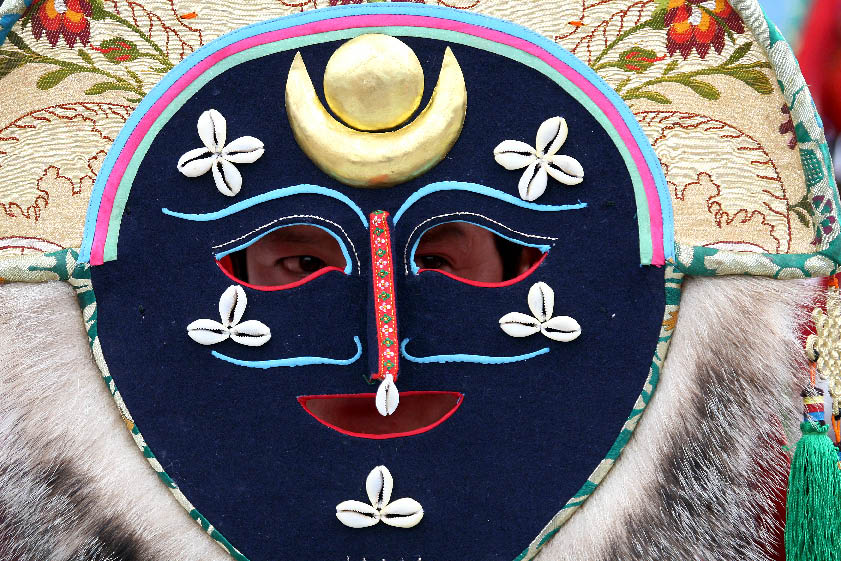|
Apart from organized activities, Shoton Festival is also a time for picnics. Families and friends get together, sharing their homemade dishes, and of course yoghurt, on the green lawns of Norbu Lingka. Situated in the west of Lhasa, Norbu Lingka (the name means garden of treasures in Tibetan language) used to be the summer palace of the Dalai Lama. Nowadays, it is a favorite spot for Lhasa residents to enjoy green grassland and the blooms of summer, but they also hold a great gala in the beautiful resort there. The outdoor stages are used for Tibetan Opera performances. During the days of Shoton Festival, tents and stages are filled with people chatting cheerily over yak-butter tea and highland barley wine, and outside the air is filled with songs and frenzied drumbeats.
Tibetan Opera is an art combining folk song, dance, storytelling, chant, acrobatics and religious rituals. Traditionally 12 Tibetan Opera troupes, of the White Mask and Blue Mask sects, perform at the Shoton Festival. About one month before the event, their actors and actresses gather in Lhasa to decide the program list and hold rehearsals in the Potala Palace. The Bindunba and Zaxixueba troupes, the veterans of the assembled groups, usually premiere on the first day of Shoton Festival. And the last day’s show belongs to Jomolung – preeminent in the Blue Mask genre.
In the prelude to an opera, several performers carry out certain religious rituals to honor the birth of the art form. Then a narrator explains and comments on the plot while the opera is being performed. A prominent feature of Tibetan Opera is the bulky masks of brilliant colors and exaggerated expressions. Masks identify roles. For example, a red mask represents the king; green stands for the queen and yellow is a symbol of deities. Tibetan Opera is performed on the open stage at the Shoton and other festivals; it is participatory, so the audiences need space to sing and dance together with the players, sometimes throughout the night. The show often ends up with a blessing ritual that is once again an occasion for the audience to present khata and donations to the troupes.
 |
| Tibetan culture and traditions are showcased. |
Rooted in Buddhist sutras, most plays narrate battles between good and evil, and good that inevitably triumphs. The art form has a social teaching function for the community, and throughout the ages it has played a central role in merging people’s spiritual and public lives. Tibetan Opera has wended its way all over Tibet, and into adjacent provinces with Tibetan communities, as well as the neighboring countries of India, Bhutan and Nepal. In May 2006, the Shoton Festival was inscribed on the National Intangible Cultural Heritage List for it is a concrete representation of traditional Tibetan culture. In 2009, Tibetan Opera was inscribed on UNESCO’s Representative List of the Intangible Cultural Heritage of Humanity. Increasingly, visitors from all over the world make their way to Lhasa in August – not just to watch but to participate in this unique Tibetan event, basking in the charm, blessings and happiness of local residents. |
